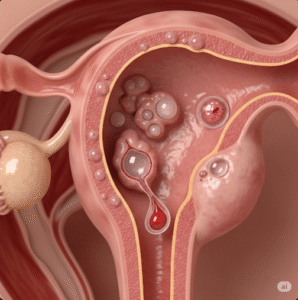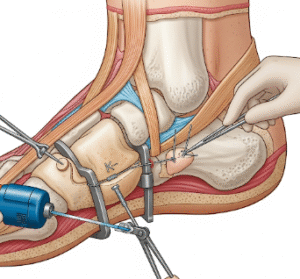Overview
Hiccups are sudden, involuntary contractions of the diaphragm, followed by the rapid closure of the vocal cords, producing the characteristic “hic” sound. They are usually brief and harmless, but persistent or severe hiccups can indicate underlying medical conditions.
In South Korea, medical facilities offer evaluation and management for persistent hiccups, including diagnostic tests, lifestyle guidance, medications, and advanced treatments when necessary.
Key Facts
🟢 ➤ Hiccups result from involuntary spasms of the diaphragm muscle.
🟢 ➤ They are usually temporary, lasting a few seconds to minutes.
🟢 ➤ Persistent hiccups (lasting over 48 hours) may indicate gastrointestinal, neurological, or metabolic disorders.
🟢 ➤ Common triggers include eating quickly, swallowing air, carbonated drinks, alcohol, or sudden excitement.
🟢 ➤ Diagnosis involves medical history, physical examination, and tests if hiccups are prolonged or severe.
🟢 ➤ Treatment ranges from simple home remedies to medications and interventions for chronic cases.
What are Hiccups?
Hiccups occur when the diaphragm, a muscle that helps with breathing, contracts involuntarily, causing a sudden intake of air that is stopped by the closure of the vocal cords.
➤ Usually harmless and self-limiting, lasting seconds to a few minutes.
➤ Persistent (lasting >48 hours) or intractable (lasting >1 month) hiccups may signal serious conditions such as gastroesophageal reflux, CNS disorders, or metabolic imbalances.
➤ Can occur at any age, from infants to elderly adults.
Symptoms Related to Hiccups
While hiccups themselves are usually obvious, associated symptoms may indicate underlying problems:
🟢 ➤ Repeated “hic” sounds with each diaphragm spasm.
🟢 ➤ Mild discomfort or irritation in the chest or throat.
🟢 ➤ Difficulty eating, sleeping, or speaking during prolonged episodes.
🟢 ➤ Persistent hiccups may be accompanied by nausea, vomiting, or abdominal pain.
🟢 ➤ In rare cases, chronic hiccups can cause weight loss, fatigue, or dehydration.
Causes / Possible Causes
Hiccups can result from simple triggers or underlying medical conditions:
Common Triggers
➤ Eating too quickly or overeating.
➤ Swallowing air while chewing gum or drinking carbonated beverages.
➤ Sudden excitement, stress, or laughter.
➤ Alcohol consumption.
Gastrointestinal Causes
➤ Gastroesophageal reflux disease (GERD).
➤ Stomach distention or irritation.
➤ Hiatal hernia or gastritis.
Neurological Causes
➤ Stroke, brain injury, or tumor affecting the brainstem.
➤ Multiple sclerosis or encephalitis.
Metabolic and Systemic Causes
➤ Diabetes, kidney failure, or electrolyte imbalances.
➤ Certain medications such as steroids, chemotherapy agents, or anesthetics.
Other Causes
➤ Post-surgical irritation of the diaphragm or vagus nerve.
➤ Respiratory conditions causing irritation of the diaphragm.
When Should I See a Doctor?
Medical attention is warranted if hiccups are:
🟢 ➤ Persistent for more than 48 hours.
🟢 ➤ Intractable, lasting over one month.
🟢 ➤ Associated with chest pain, vomiting, shortness of breath, or neurological symptoms.
🟢 ➤ Causing significant discomfort, sleep disturbance, or weight loss.
🟢 ➤ Occurring in patients with underlying medical conditions such as heart, kidney, or liver disease.
Early evaluation helps identify underlying causes and prevent complications.
Care and Treatment
Most hiccups resolve on their own, but management strategies exist for prolonged or severe cases:
Home and Lifestyle Measures
➤ Hold your breath or practice slow, deep breathing.
➤ Drink cold water or swallow sugar.
➤ Gently pull on your tongue or gargle to stimulate the vagus nerve.
➤ Avoid overeating, carbonated drinks, or excessive alcohol.
➤ Reduce stress and practice relaxation techniques.
Medical Treatments
➤ Medications for persistent hiccups: chlorpromazine, metoclopramide, baclofen, or gabapentin.
➤ Treat underlying conditions such as GERD, infections, or metabolic imbalances.
Advanced or Interventional Treatments
➤ In rare intractable cases, nerve stimulation (vagus or phrenic nerve) may be considered.
➤ Surgical interventions are rarely required but may be used for refractory cases linked to structural problems.
Advanced Care in Korea
➤ South Korean hospitals provide comprehensive evaluation for persistent or intractable hiccups.
➤ Multidisciplinary teams including gastroenterologists, neurologists, and ENT specialists collaborate to manage underlying causes.
➤ Patients receive customized treatment plans, medications, lifestyle counseling, and monitoring to ensure relief and prevent recurrence.
Highlights (Clean Green Arrow Version)
🟢 ➤ Hiccups are involuntary contractions of the diaphragm, usually harmless and self-limiting.
🟢 ➤ Symptoms: repeated “hic” sounds, mild chest/throat discomfort, difficulty eating or sleeping, and in chronic cases, weight loss or fatigue.
🟢 ➤ Causes: overeating, swallowing air, stress, GERD, neurological disorders, metabolic issues, medications, or post-surgical irritation.
🟢 ➤ Seek medical care if hiccups persist >48 hours, are intractable, or are associated with chest pain, vomiting, or neurological symptoms.
🟢 ➤ Treatments include home remedies, medications for persistent hiccups, and advanced interventions in rare cases.
🟢 ➤ South Korea provides specialized care with multidisciplinary evaluation, medical therapy, nerve stimulation, and long-term monitoring for chronic or severe hiccups.













